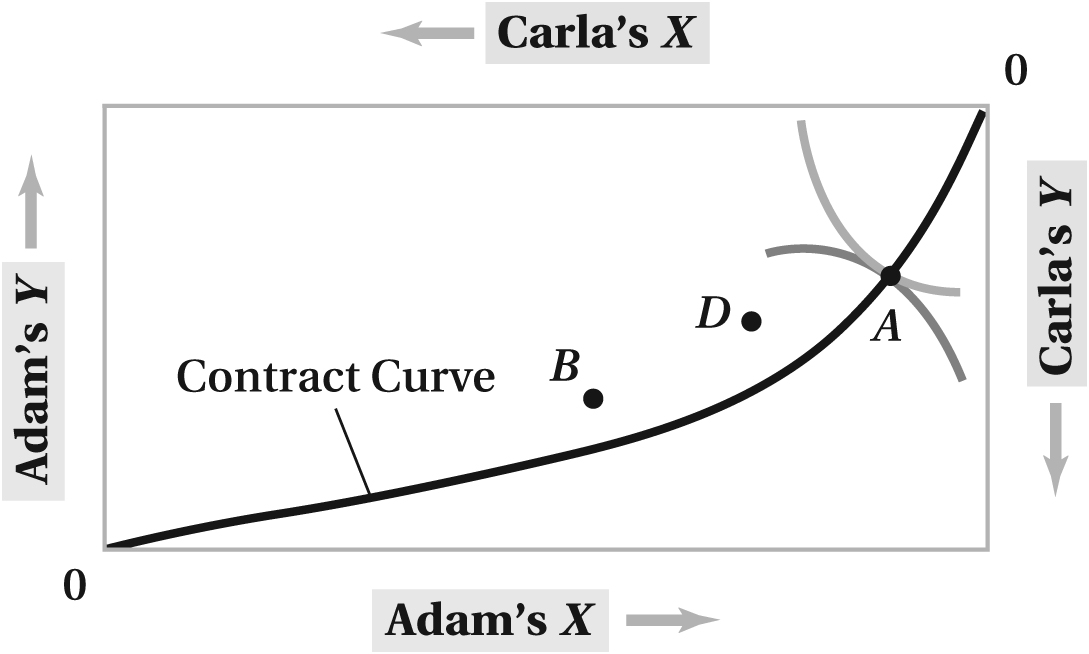The Edgeworth box below depicts Adam?s and Carla?s allocation of two goods, X and Y . Adam
Question:
The Edgeworth box below depicts Adam?s and Carla?s allocation of two goods, X and Y. Adam and Carla are currently at A, on the contract curve.

a. When allocating goods, Pareto efficiency seems like a property we should be pleased with. But is Pareto efficiency everything? Comment critically on the desirability of the allocations represented by A and B.
b. The Second Welfare Theorem implies there is always a Pareto-efficient allocation that is better for all people than an inefficient allocation. Add indifference curves for Carla and Adam at point B, and then find a Pareto-efficient allocation on the contract curve that both would prefer. Label that point C.
c. Suppose that Carla and Adam are currently at point A, but society?s social welfare function indicates point C is the best possible allocation. Explain why we can?t rely on trade alone to move Carla and Adam from A to C.
d. The Second Welfare Theorem suggests that society can reach any Pareto-efficient allocation by choosing an appropriate redistribution and then letting individuals trade. Suppose the government decided to redistribute the initial allocation of X and Y in hopes of achieving the socially optimal allocation at C. Explain why redistributing to allocation B might eventually produce that allocation, but redistributing to allocation D would not.
Step by Step Answer:

Microeconomics
ISBN: 9781319105563
3rd Edition
Authors: Austan Goolsbee, Steven Levitt, Chad Syverson





